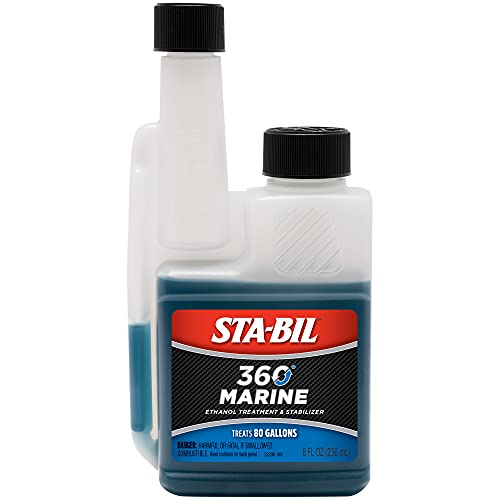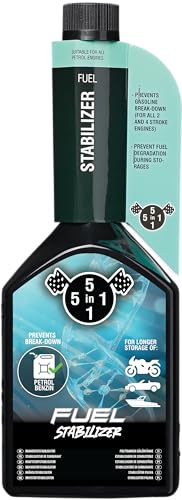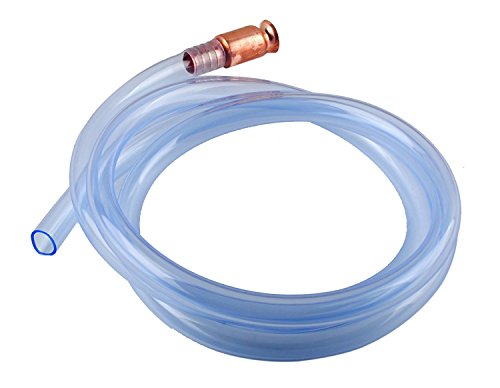Understanding Fuel Stabiliser: What It Is and Why You Need It
What is Fuel Stabiliser?
Fuel stabiliser is a specially formulated additive designed to prolong the shelf life of fuel and prevent it from deteriorating over time. When fuel is stored for extended periods, such as during the winter months or between uses of your equipment, it can break down and lose its effectiveness. This can lead to problems such as clogged fuel lines, gummed-up engines, and disruptions in fuel delivery, which could make your equipment harder to start or even render it unusable.
The Importance of Using Fuel Stabiliser
Utilising fuel stabiliser is essential for anyone who has machinery or vehicles that may sit idle for a while, such as motorcycles, lawn mowers, and boats. By incorporating a fuel stabiliser into your fuel management routine, we can ensure that our fuel remains fresher for longer, reducing the risk of engine damage and costly repairs down the line. In essence, fuel stabiliser acts as a safeguard on our fuel investment and the reliability of our equipment.
How Fuel Stabiliser Works: A Simple Breakdown
The Chemistry Behind Fuel Stabilisation
Fuel stabilisers contain a blend of chemicals that work to prevent the oxidation of fuel. Over time, exposure to air and moisture can lead to the formation of varnish and sludge, which can clog fuel systems and diminish performance. Fuel stabiliser mitigates this process by inhibiting chemical reactions that lead to these issues, allowing your fuel to maintain its integrity for a more extended period.
Preventing Issues Before They Occur
When we add fuel stabiliser to our fuel before storage, it actively protects against the common problems associated with stale fuel. It prepares the fuel for storage by creating a barrier between it and the air, thus slowing down the ageing process. This means that when we crank up our mowers in the spring or head out for a boating trip after months of inactivity, the chances of facing starting issues or performance drops are significantly decreased.
Choosing the Right Fuel Stabiliser for Your Needs: Key Features to Consider
Compatibility with Fuel Types
One crucial factor to consider when selecting a fuel stabiliser is its compatibility with the type of fuel you’re using. Most stabilisers are formulated for gasoline, but if you’re dealing with diesel or ethanol-blended fuels, we need to ensure the stabiliser we choose is appropriate. Checking packaging information can help us select a stabiliser that meets our specific fuel needs.
Concentration Levels and Longevity Benefits
Different stabilisers come with varying concentrations that determine how effective they will be over time. We should look for products that indicate how long they can keep the fuel stable, especially if we plan on storing fuel for several months. A stabiliser that offers long-lasting protection will save us time and hassle when we decide to use our equipment again.
Easy Steps for Using Fuel Stabiliser Effectively: Our Recommendations
Incorporating Stabiliser Into Fuel Storage
When it comes to using fuel stabiliser effectively, timing is everything. We recommend adding the stabiliser to fresh fuel right before we store it. Follow the instructions on the label to determine the appropriate ratio of stabiliser to fuel. After adding the stabiliser, give the fuel a good shake to ensure it’s mixed thoroughly.
Storing Fuel Properly
Post-stabiliser addition, it’s vital that we store the fuel in a cool, dry place, using containers designed for fuel storage. This practice helps to maintain the efficacy of the stabiliser while also safeguarding our fuel against adverse environmental factors such as heat, light, and moisture.
Maximising Longevity: How Fuel Stabiliser Protects Your Fuel-Operated Equipment
Improving Engine Performance
By preventing fuel degradation, stabilisers enhance the overall performance of our fuel-operated equipment. Fresh fuel means less likelihood of engine issues and smoother operation, enabling us to rely on our machinery when we need it. We can maintain the efficiency of our engines efficiently and extend the life of our investments.
Cost-Effective Maintenance Solution
Investing in a quality fuel stabiliser can save us a considerable amount in maintenance and repair costs in the long run. By protecting our fuel and equipment from the adverse effects of stale fuel, we avoid expensive engine repairs, replacement parts, and service fees. In this way, using fuel stabiliser is not just a preventative measure; it’s a smart financial decision.

















